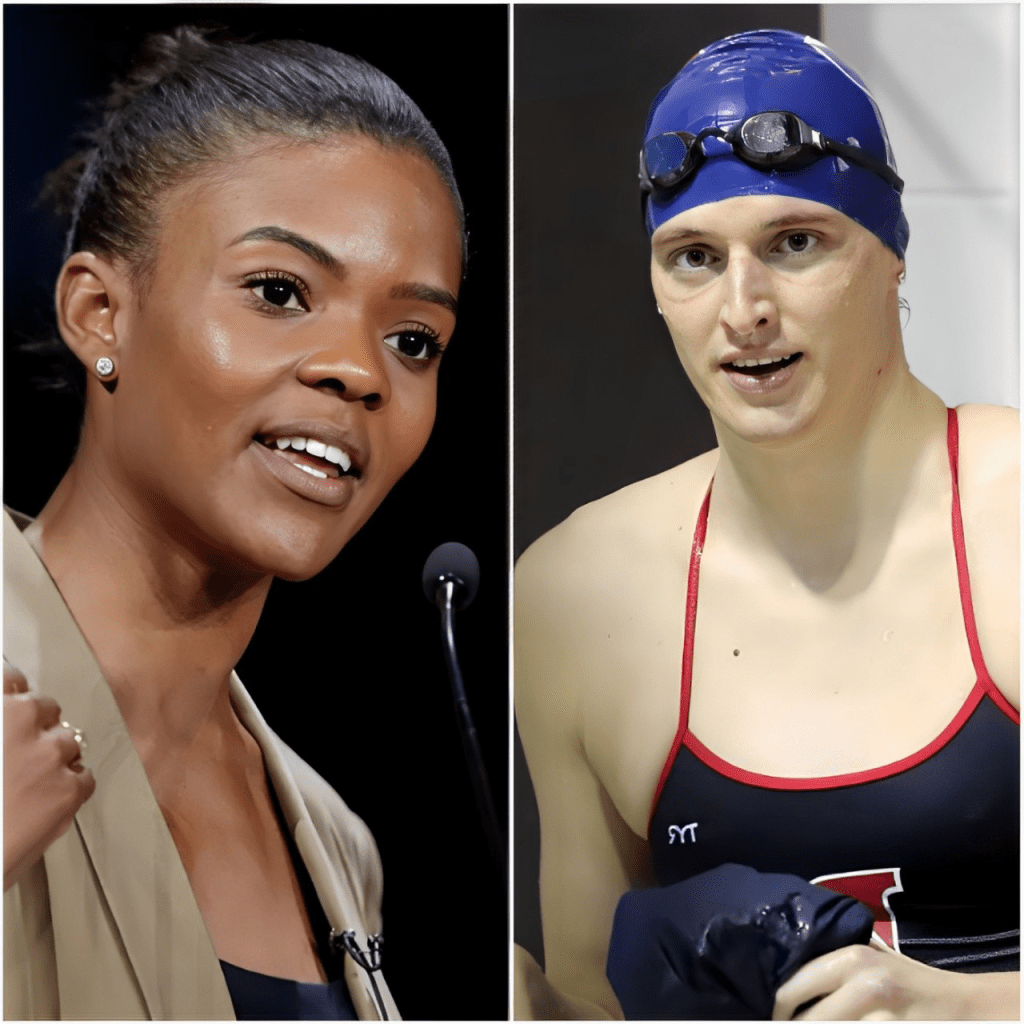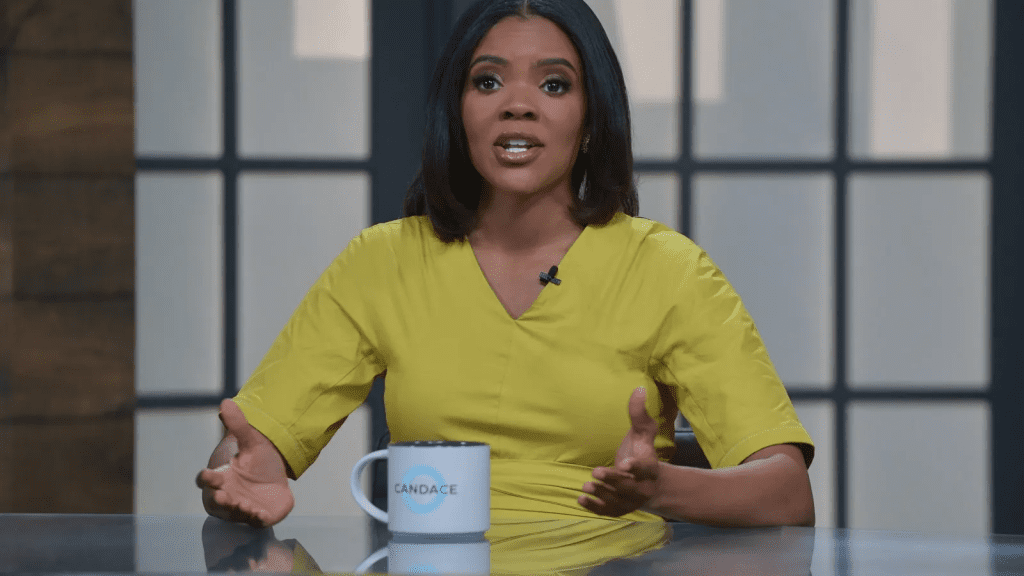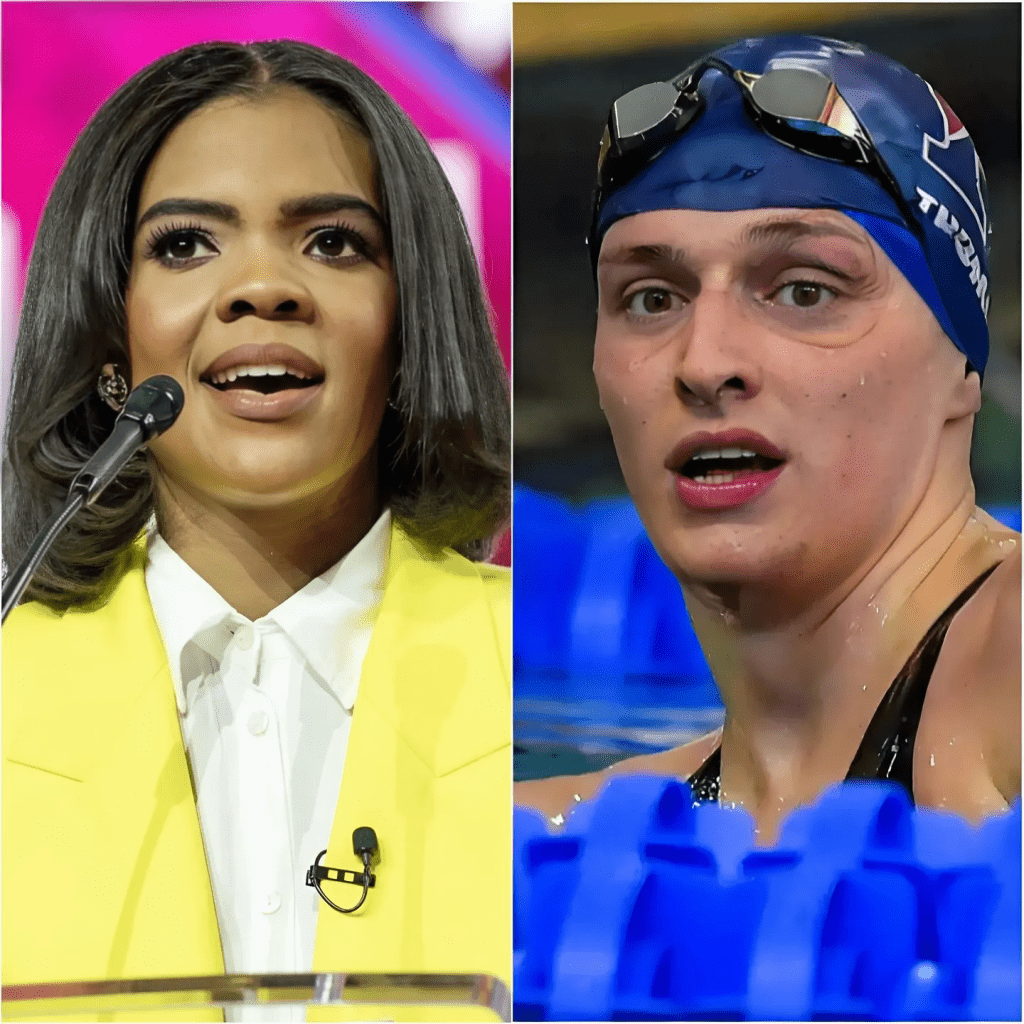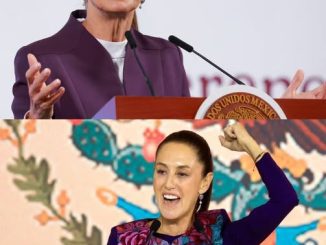
In a move that has reignited a fiery debate on gender, fairness, and inclusion in sports, Candace Owens, a prominent conservative commentator and political figure, has made a strong call for the exclusion of Lia Thomas from women’s sports. Owens is calling on schools and sports organizations to bar Thomas, a transgender swimmer who gained national attention for competing in collegiate women’s swimming events, arguing that biological differences should be prioritized to maintain fairness in female athletics.
Owens’ position is straightforward, emphasizing that protecting the integrity and fairness of women’s sports must be the top priority. “This isn’t about discrimination,” Owens stated. “It’s about ensuring that women’s hard-won victories and opportunities are not undermined.” Her comments have sparked widespread discussion, receiving both praise and criticism from various corners of society.
Candace Owens, well-known for her controversial stances on numerous social issues, addressed the controversy surrounding Thomas’ participation in women’s sports, particularly in swimming. Owens emphasized the significance of maintaining competitive fairness, where physical advantages based on biological sex are considered.

“This issue is not about denying rights, it’s about maintaining fairness,” Owens continued. “Women have fought for equality in sports, and it is unfair to ignore the biological realities that make the playing field unequal.”
The controversy surrounding Lia Thomas has become a flashpoint in the larger debate about transgender athletes in competitive sports. Some argue that transgender individuals should have the right to compete in alignment with their gender identity, while others believe that this compromises the principles of fairness in female sports, particularly in terms of physical advantages. Critics of transgender participation in women’s sports often cite the physical benefits that come from male puberty, such as greater muscle mass and bone density, which may not be entirely offset by hormone replacement therapy.
Owens’ call for a ban has struck a chord with those who prioritize fairness in competition. Supporters argue that it is crucial to protect opportunities for biological females in sports. “We’re not advocating for exclusion; we want fairness,” one supporter wrote on social media. “Candace is standing up for women’s sports. It’s about ensuring equal opportunities, not hate.”
However, Owens’ remarks have drawn fierce opposition, particularly from transgender advocates. Critics argue that her position is harmful and dismisses the challenges faced by transgender athletes. One prominent LGBTQ+ rights advocate tweeted, “This rhetoric only divides us further. Transgender athletes deserve a fair shot, just like everyone else.”

As the debate intensifies, educational institutions and sports organizations have yet to provide a clear response to Owens’ call. The current regulations surrounding transgender athletes in sports vary widely, with some organizations allowing participation based on hormone levels, while others require a specified duration of hormone therapy before allowing an athlete to compete in a gendered category.
The complex issue lies in balancing inclusivity with fairness. Transgender athletes argue that being denied the opportunity to compete in alignment with their gender identity constitutes discrimination. On the other hand, advocates for women’s sports worry that without clear guidelines, the integrity of female athletics could be compromised.
Experts in sports science have weighed in, acknowledging the nuanced nature of the debate. While studies have shown that transgender women undergoing hormone therapy experience significant physical changes, there are still questions about whether these changes fully mitigate the advantages of male puberty, such as increased muscle mass and bone density.
One sports physiologist noted, “Science is evolving, but the need for fair policies is urgent. We must ensure that women’s sports remain a level playing field.”
Owens’ remarks have also sparked broader conversations about the cultural dynamics surrounding gender and identity in sports. For her supporters, Owens’ willingness to speak out represents a commitment to protecting women’s spaces in sports, especially in the face of growing societal pressures for inclusion. However, critics argue that her stance feeds into a larger narrative that marginalizes transgender individuals, further dividing an already polarized society.
In her comments, Owens explained that her motivation stems from a desire to safeguard opportunities for future generations of female athletes. “I want my daughter, and every little girl, to know that when she steps onto the field or court, she is competing in a fair and equal environment,” Owens said in a recent interview.
As the debate continues to unfold, it is clear that this issue touches on deeply held beliefs about identity, fairness, and the role of sports in society. Owens’ remarks have reignited this crucial conversation, and as the debate intensifies, it is evident that this issue is far from resolved. The path forward remains uncertain as sports organizations wrestle with the challenge of crafting policies that respect both inclusivity and the integrity of competition.

Candace Owens’ comments have made it clear where she stands on this divisive issue, adding fuel to an ongoing discussion that shows no signs of fading. Whether one agrees with her or not, it is evident that the question of fairness in sports will remain a contentious and complex issue for years to come.


